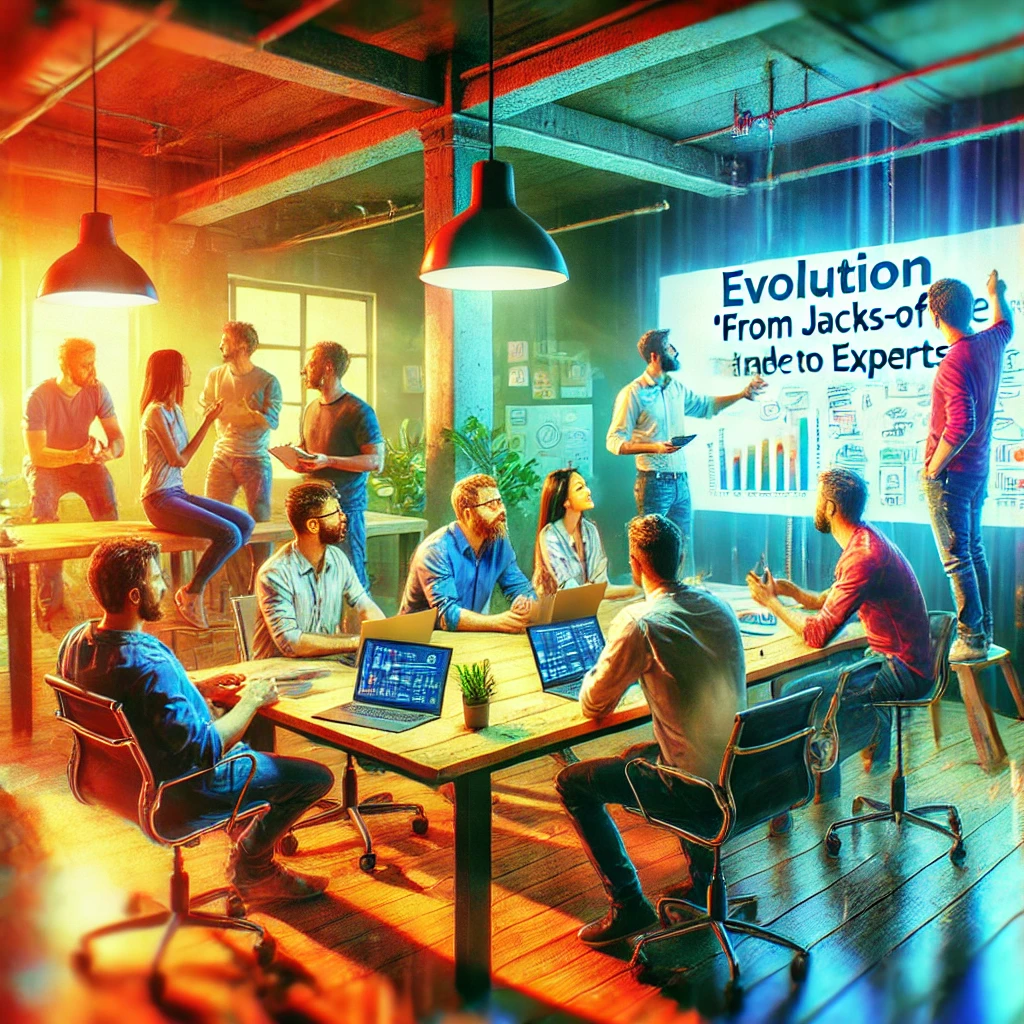The job market for Product Managers is changing significantly, reshaping the skills and expertise required for success in career path. While the traditional reliance on years of experience is being challenged, this shift presents a unique opportunity for PMs to embrace new learning and growth. The increasing emphasis on domain-specific knowledge creates a landscape where more than broad experience may be required, opening doors to exciting new possibilities.
Companies increasingly seek PMs with deep domain expertise as industries become more specialized and technology advances. This shift is particularly evident in industries like fintech, healthcare, where the complexities of the field demand a nuanced understanding that goes beyond general product management skills. However, it’s important to remember that your existing skills and experience as a PM are still highly valuable. They provide a solid foundation for building your domain expertise, giving you a unique advantage in the changing job market.
Experienced PMs, who have traditionally relied on their broad skill sets, now face the challenge of upskilling or reskilling to meet these new demands. This transition can be daunting, especially for professionals who have built their careers on a foundation of versatile product management expertise. In the past, Product Managers could approach job opportunities without knowledge, some knowledge in an area, or a very specific knowledge within an industry. Pre-COVID, all these approaches, in the vast majority of cases, allowed a conversation with recruiters to start. Of course, in some cases where some experience was essential, mainly technical, it wouldn’t happen. However, many things we do are new ways to solve problems, process improvements, or develop new approaches to improve outcomes; we do this by working together with UX designers and engineers. The time we need to understand a new job that we start has always been more than enough for a good PM to learn about the market and start delivering value. Often, these PMs start thinking about their new industry the moment they receive the first contact from the company, and the process begins and goes on until the first day at the company.
However, a significant impact of this change is that Product Managers can only find new opportunities if companies require their exact skill set and domain experience. If domain experience is the first thing expected from a jobseeker PM, this career might lose its attractiveness. The emphasis on domain expertise over general product management skills could prevent talented individuals from pursuing or continuing in the PM career path, ultimately leading to a shortage of versatile PMs who can bring fresh perspectives to various industries.
PMs must grab continuous learning and professional development to stay relevant in this evolving job market. However, requirements for domain experience are more explicit today from job descriptions, with a must-have in bold. Many times, what I have experienced and heard from others are rejections during an interview due to a lack of specific experience. But this was clear on the resume from the moment we applied.
Building domain expertise requires practice. How can you gain experience in a new industry if you need experience to work in it? Taking steps back and getting a job where you cannot deliver your full potential just to get a foothold in a new industry, and then being able to move forward and connect your (probably limited, as you re-started at a junior level) industry experience with your history as a Product Manager? I don’t know how this is possible or if it is the best way.
Moreover, a recent trend has emerged where PMs are now having interviews with Product Leaders (Heads and VPs) who have zero experience in the product management process. These leaders often need to learn what the path from insight to validating the outcomes of a new solution released to users entails. Instead, they are highly knowledgeable about specific domains, acting as real Subject Matter Experts. This raises the question: is this person a VP of Product or a company’s Domain Expert? Why are companies pushing them for accountability to deliver products? Why can’t they support or be part of product teams, similar to roles like designers, engineers, and data analysts?
While the demand for domain expertise is rising, the foundational skills of a successful PM — such as leadership, strategic thinking, and user empathy — remain crucial. The challenge lies in balancing being a generalist and a specialist. PMs who can effectively blend their broad experience with deep domain knowledge will likely be the most sought-after candidates. Continuous learning is fundamental for us as Product Managers. However, I honestly don’t know if taking a course on fintech would replace what the market seeks as domain expertise. It can add to the CV for a post-keyword identification analysis, but never when validating experience; it can fail. Unfortunately, I don’t know how to overcome this barrier.
The transformation of the product management job market underscores the need for adaptability and lifelong learning. PMs must proactively seek opportunities to deepen their domain expertise while leveraging their extensive experience in product delivery. By doing so, they can continue to deliver exceptional value in an increasingly specialized landscape.
The future of the product management job market will likely see an even greater emphasis on specialized skills and domain expertise. PMs must evolve continuously, balancing their generalist skills with targeted domain knowledge. As the industry grows more complex, the ability to adapt and learn will be the key differentiator for success in the field. By addressing the challenges posed by this shift, the product management career might retain its attractiveness, ultimately impacting the availability of versatile PMs who can drive innovation across various sectors.
